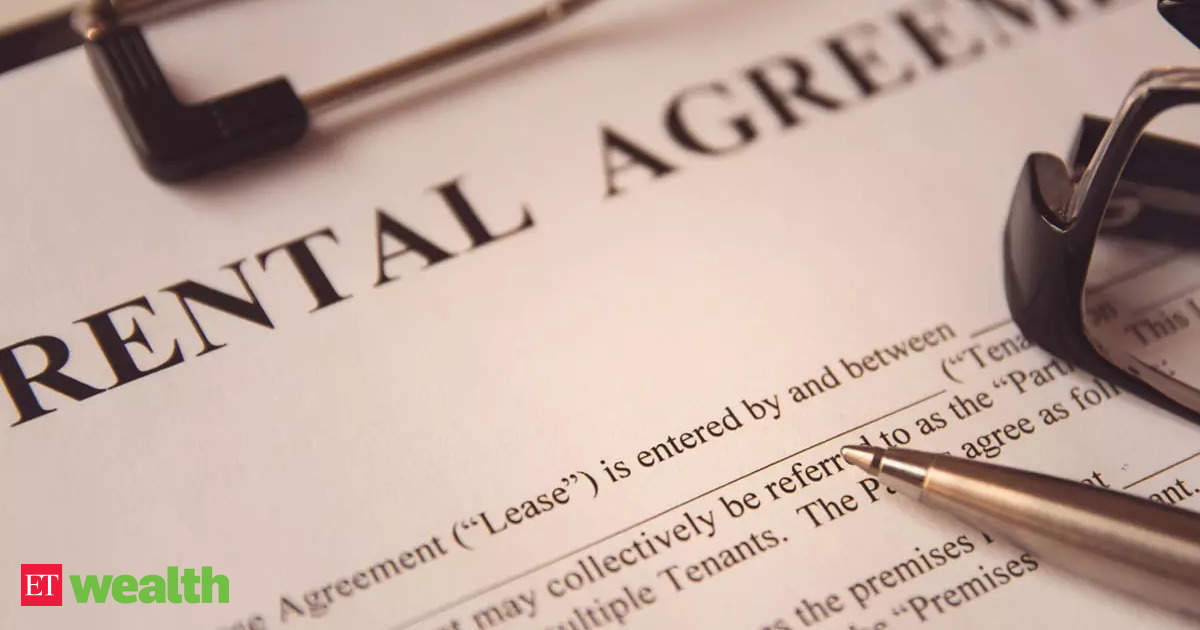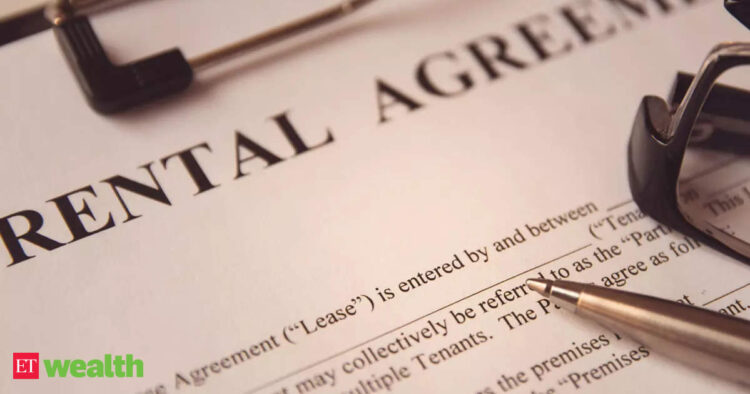
When renting out their house, landlords must ensure that the rental lease agreement includes clauses that protect their rights. These clauses would help the landlord in case of tenant damaging the property, not maintaining it, using it for illegal purposes, not vacating after expiry of lease agreement etc.
Mitali Naik, Partner, DSK Legal, says, “The process of letting out properties has evolved tremendously in the last decade. Landlords are required to be vigilant on a lot of aspects.”
A comprehensive lease agreement is necessary to avoid complications and legal tangles after the property has been rented out. Landlords should not rely on oral commitments from tenants. “While granting properties on rent, the landlord should ensure that they enter into a written agreement with the tenant mentioning the terms of the lease and ensure that certain essential clauses are covered,” she says.
Here are some clauses that experts say landlords must add in a rent agreement to protect their rights:
Purpose of occupation and property description: The rent agreement must mention the purpose of taking the house on rent. Sanjay Jain, a senior advocate, says the rent agreement must emphasise specific purpose of occupation, such as “for the purposes of residence of the tenant and his dependant family members”.
This is aimed at ensuring that the tenant does not use the premises for commercial purposes (unless specified in the agreement) or let unrelated (non-family members) people live there in lieu of cash payments on the side.
The rent agreement must specify that the tenant is only given permission to use and occupy the premises, while the possession and ownership of the premises is retained by the landlord, says Naik.
Meghna Mishra, Partner of law firm Karanjawala & Co, says, “In case the property is furnished or semi-furnished, a separate schedule setting out the gadgets, furniture and fixtures on the premises must be added in the lease agreement”.
Duration of the rent agreement: The rent agreement must mention the duration for which the house property has been rented out along with the lock-in period, if any. Naik says, “If the tenant wants to leave the house before the expiry of the lock-in period, the rent agreement must mention the consequences that will entail.”
A lock-in period is advisable for these reasons: Often the landlord incurs some fixed cost in terms of getting the house painted and otherwise prepared for renting purpose. At times, some changes, or a specific paint colour may be done to suit the tenant. The landlord may also have to pay brokerage to a broker for finding a tenant for the house. If the tenant vacates soon after occupying the house, then these expenses have to be borne again for the next tenant. Consequently, it is important that a tenant stays for long enough for the landlord to recover these expenses from the monthly rental.
The document must also clarify the notice period for termination of the agreement by either party – landlord or tenant. Mishra says it would be wise to also specify the terms of renewal of the rent agreement.
Transfer of lease: The rent agreement must state that the tenant cannot transfer the lease to a third party. Jain says, “The rent agreement must contain a clause that the tenant will not sublet, assign or otherwise part with the possession of the premises to any third party and that he will not use the property for any purpose contrary to law.”
If subletting is being allowed, it must be mentioned in the rent agreement along with the specified conditions. Mishra says, “Restrictions on using hazardous materials or engaging in illegal activities on the premises should also be mentioned in the agreement.”
Repairs and maintenance of the house: A clause must be added in the rent agreement specifying the type of repairs and maintenance that must be done by the landlord. Jain says, “The nature and extent of repairs that would be the responsibility of the landlord during the tenancy period must be clarified. This will also clarify that the landlord is not compelled to be engaged in handling day-to-day repairs that the premises may require.”
However, the rent agreement must specify that no structural changes must be made to the premises. Naik says, “For preservation and maintenance of the structure of the premises and to ensure that no loss or damage is caused to the premises, it is essential to incorporate necessary clauses confirming that no structural changes can be carried out in the premises by the tenant.”
If the tenant wants to make any alterations, it must be mentioned in the rent agreement. Mishra says, “The rent agreement can specify to what extent and under what conditions alterations to the property can be done.”
Mishra also says that the agreement must mention when the landlord can access the property for inspection and repairs and also to ensure compliance with legal requirements.
Payment of utilities and other maintenance bills: The rent agreement must clarify who will pay utility bills such as electricity, water bills and maintenance charges.
Timely payment of rent: The lease agreement must specify the amount of rent, mode of payment for receiving the rent from the tenant and due date for making the rent payment. Naik says, “A clause must be added in the rent agreement specifying the late fees or interest that will be payable if rent amount is not paid on or before the due date.”
Return house in good condition: There must be a clause stating that the security deposit will be returned interest-free if the house is given back in good condition. Jain says, “This is important because usually the tenants can become careless at the time of vacating and are likely to leave the premises in a damaged condition. For this reason, the clause should indicate what kind of damage would be adjustable against the security deposit.” The rent agreement should include an inventory of fitting and fixtures, which will help in regulating the covenants relating to maintenance, repairs and damages, he adds.
The rent agreement must mention the detailed steps to be taken and conditions that must be met for the tenant to move out, including cleaning, damage assessment, and security deposit refund, Mishra adds.
Deterrent for failure to handover the house: The agreement has to cover the implications of the tenant failing to hand over the house on expiry of the lease. Mishra says, “The rent agreement must state the reasons for which a landlord can evict the tenant. It should also mention the clause outlining the process for resolving disputes or conflicts before taking any legal action.”
Registration of rent agreement: It is essential for the landlord to ensure that the rent agreement is registered with the office of the sub-registrar concerned.
Also Read: Why rent agreements are made for 11 months only
A landlord can also get the lease agreement reviewed from a lawyer to ensure that their rights are protected.














